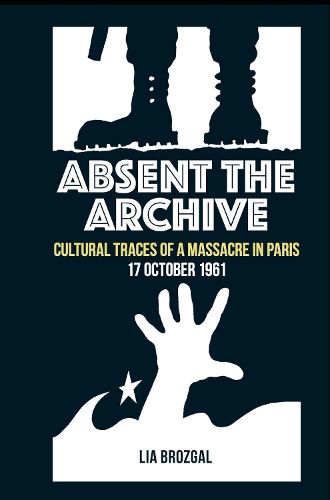Readings Newsletter
Become a Readings Member to make your shopping experience even easier.
Sign in or sign up for free!
You’re not far away from qualifying for FREE standard shipping within Australia
You’ve qualified for FREE standard shipping within Australia
The cart is loading…






Absent the Archive is the first cultural history in English that is devoted to literary and visual representations of the police massacre of peaceful Algerian protesters. Covered up by the state and hidden from history, the events of October 17 have nonetheless never been fully erased. Indeed, as early as 1962, stories about the massacre began to find their way their way into novels, poetry, songs, film, visual art, and performance. This book is about these stories, the way they have been told, and their function as both documentary and aesthetic objects. Identified here for the first time as a corpus-an anarchive-the works in question produce knowledge about October 17 by narrativizing and contextualizing the massacre, registering its existence, its scale, and its erasure, while also providing access to the subjective experiences of violence and trauma. Absent the Archive is invested in exploring how literature and culture represent history by complicating it, whether by functioning as first responders and persistent witnesses; reverberating against reality but also speculating on what might have been; activating networks of signs and meaning; or by showing us things that otherwise cannot be seen, while at the same time provoking important questions about the aesthetic, ethical, and political stakes of representation.
$9.00 standard shipping within Australia
FREE standard shipping within Australia for orders over $100.00
Express & International shipping calculated at checkout
Absent the Archive is the first cultural history in English that is devoted to literary and visual representations of the police massacre of peaceful Algerian protesters. Covered up by the state and hidden from history, the events of October 17 have nonetheless never been fully erased. Indeed, as early as 1962, stories about the massacre began to find their way their way into novels, poetry, songs, film, visual art, and performance. This book is about these stories, the way they have been told, and their function as both documentary and aesthetic objects. Identified here for the first time as a corpus-an anarchive-the works in question produce knowledge about October 17 by narrativizing and contextualizing the massacre, registering its existence, its scale, and its erasure, while also providing access to the subjective experiences of violence and trauma. Absent the Archive is invested in exploring how literature and culture represent history by complicating it, whether by functioning as first responders and persistent witnesses; reverberating against reality but also speculating on what might have been; activating networks of signs and meaning; or by showing us things that otherwise cannot be seen, while at the same time provoking important questions about the aesthetic, ethical, and political stakes of representation.